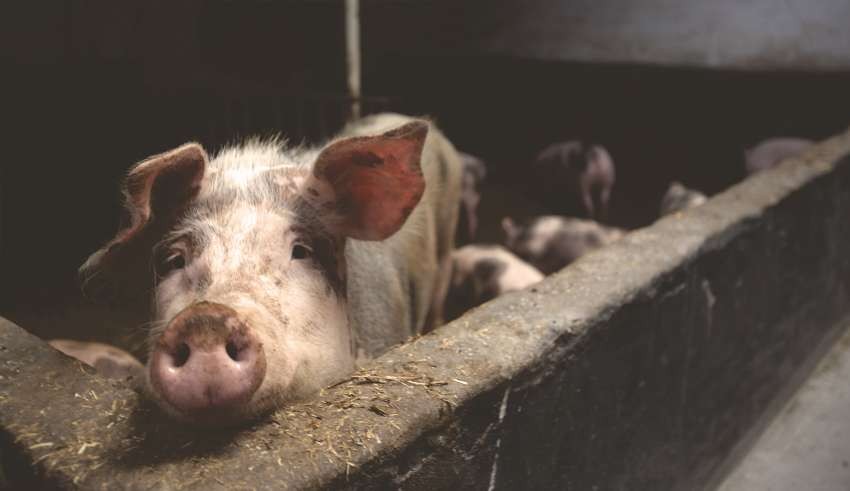It’s a common observation for anyone sharing a meal with a Muslim: the meticulous inquiries about ingredients and cooking methods. Questions like, “Was this cooked with pork?” or “Is there any bacon in this?” are not uncommon. This carefulness stems from a deeply held religious principle: the Islamic prohibition of pork consumption. This isn’t a matter of preference but a significant tenet of their faith. But why don’t Muslims eat pork?
Islam is more than just a religion; it’s a comprehensive way of life. It guides Muslims in spiritual practices like prayer and charity, but also in everyday aspects, including their diet. For Muslims, maintaining a healthy lifestyle is as important as spiritual well-being. The principle “You are what you eat” resonates deeply. Consuming pure and wholesome food is seen as crucial for physical and spiritual health, while consuming harmful substances is discouraged. For nearly two billion Muslims globally, abstaining from pork is not a dietary trend but a divine commandment, an act of worship and obedience to God.
The Divine Origin of the Pork Ban in Islam
The prohibition of pork in Islam is explicitly stated in the Quran, the holy book of Islam. In four different verses, God clearly forbids the consumption of swine flesh. One verse in particular highlights the reason for this restriction:
“Say, “I do not find within that which was revealed to me [anything] forbidden to one who would eat it unless it be a dead animal or blood spilled out or the flesh of swine – for indeed, it is impure…” [Noble Quran 6:145]
This verse underscores that the prohibition is divinely ordained and links it to the impurity of the pig. In Islamic theology, this is understood as a measure of protection from God, the Creator, for the benefit of humankind.
 A variety of pork products including bacon, sausage, and ham are displayed, representing food items that are forbidden in Islam.
A variety of pork products including bacon, sausage, and ham are displayed, representing food items that are forbidden in Islam.
Understanding the Impurity: More Than Just “Unclean”
The Quran uses the word “Rijs” to describe pork, often translated as “impure” or “unclean.” This impurity is not merely a physical state but also encompasses spiritual and health dimensions. Pigs are considered scavengers in nature, consuming a wide range of food, including decaying matter, waste, and even carrion. This dietary habit means pigs ingest numerous toxins and parasites.
Unlike ruminant animals like cows and sheep, which have complex digestive systems with multiple stomach chambers to filter out toxins, pigs have a simpler digestive system and a rapid digestion process. This less efficient filtration system means that toxins and parasites can be stored in the pig’s body, particularly in its fatty tissues. These pathogens can then be transmitted to humans who consume pork, posing potential health risks.
Animals like cattle and sheep, being herbivores with a rumen and longer digestive processes (12-24 hours), naturally filter out many toxins from their system. Poultry also has an additional organ, the crop, which aids in digestion. This difference in biological makeup is presented as a part of the wisdom behind the Islamic dietary guidelines.
The Prohibition in Other Abrahamic Faiths
Interestingly, the prohibition of pork is not unique to Islam. It also exists in Judaism and Christianity, the other major Abrahamic faiths. The Bible contains clear prohibitions against consuming pork, as mentioned in the original article, citing Leviticus 11:7-8, Deuteronomy 14:8, and Isaiah 66:17. These verses also describe the pig as “unclean” and forbidden for consumption.
“And the pig, because it has a cloven hoof that is completely split, but does not regurgitate its cud; it is unclean for you. You shall not eat of their flesh and you shall not touch their carcasses, they are unclean for you.” [Leviticus 11:7-8]
While some argue that these prohibitions were context-specific to ancient times due to hygiene concerns and lack of refrigeration, Islamic scholars maintain that God’s laws are timeless and for all people. They believe that the wisdom behind these commandments remains relevant even with modern advancements in food processing and hygiene.
Scientific Perspectives on Pork Consumption
Beyond the religious basis, modern science has also highlighted potential health concerns associated with pork consumption, lending credence to the Islamic and Abrahamic prohibitions.
Pork liver, for example, has been identified as a significant source of Hepatitis E virus transmission. Studies, like the one mentioned in the original article (Szabo K et al Intl J of Food Microbiol 2015), have shown high contamination rates in pork liver products, especially in regions where raw or undercooked pork is consumed.
Trichinosis, caused by the parasite Trichinella spiralis, is another well-documented health risk associated with eating undercooked pork. This parasite can cause a range of symptoms, from fever and gastrointestinal issues to muscle pain and more severe complications as the larvae migrate throughout the body.
Furthermore, research has explored potential links between pork consumption and chronic diseases. The original article cites a study (Nanji A A Med Hypotheses 1986) suggesting a correlation between pork consumption and the prevalence of multiple sclerosis (MS), noting lower MS rates in regions where pork is not consumed. While more research may be needed to establish definitive causal links, these scientific findings offer further insights into the potential health implications of pork consumption.
The Abundant Alternatives: The Muslim Diet
The prohibition of pork in Islam does not imply a restrictive or limited diet. On the contrary, Islamic dietary laws permit a wide variety of wholesome and nutritious foods. Muslims are allowed to eat meat from cattle, sheep, lamb, and poultry that are slaughtered according to Islamic guidelines (Zabihah). Fish and seafood are also permissible.
Furthermore, Islam encourages a balanced diet rich in fruits, vegetables, grains, and dairy products. The Quran emphasizes the blessings of livestock and the provision of diverse foods for human sustenance:
“And the grazing livestock He has created for you; in them is warmth and [numerous] benefits, and from them you eat.” [Noble Quran 16:5]
Islamic teachings promote moderation in eating and discourage extravagance and wastefulness. The focus is on consuming what is Halal (permissible) and Tayyib (pure and good), ensuring both physical and spiritual well-being.
Obedience, Faith, and Holistic Well-being
Ultimately, for Muslims, the abstinence from pork is an act of obedience to God and a demonstration of their faith. They believe that God, in His infinite wisdom and mercy, has prohibited pork for their benefit, both in this life and the hereafter. By adhering to these divine guidelines, Muslims seek to purify their bodies and souls, striving for holistic well-being. This obedience is seen as a form of worship, bringing them closer to God and earning His pleasure. The Islamic perspective emphasizes that adhering to these dietary laws is not a burden but a blessing, protecting them from potential harms and guiding them towards a healthier and more spiritually conscious life.
